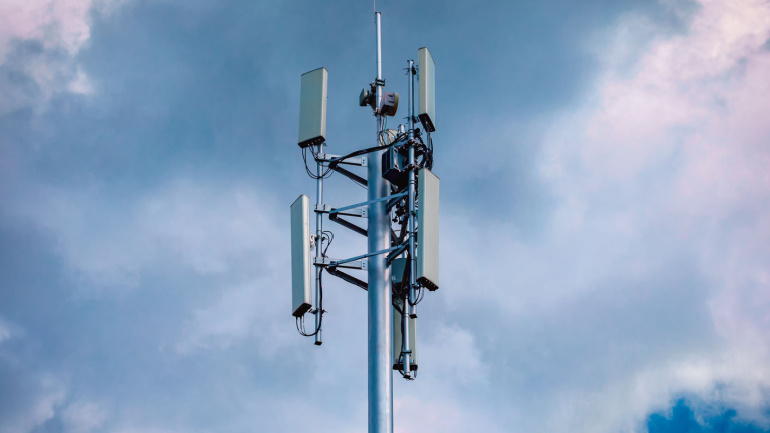5G – a transformative force reshaping engagement and innovation parameters, and serving as an unbeatable tool in the delivery of public services. A recent discussion convened by industry experts highlighted the profound ways 5G is set to transform public service delivery. The prime objective? To nurture an environment of growth through collaboration, aligning 5G deployments with societal needs and creating impactful outcomes. Public authorities are encouraged to adapt, to harness the power of 5G and transform public service delivery. The journey of 5G is only just beginning.
VoIP continues its growth trajectory, serving both businesses and individuals for internet-based calls and messaging. Predictions for the next decade include 5G integration, AI-driven enhancements, IoT synergy, and mobile VoIP expansion. VoIP adoption will increase globally, cybersecurity investments will rise, and it will be integral to customer-centric strategies. Ultimately, VoIP may replace PSTN, undergo infrastructure improvements, and remain promising with 5G and AI advancements.
Five nations have formed a global alliance, ambitiously named the Global Coalition on Telecommunications (GCOT), a promising step towards international cooperation in the telecommunication arena. Set to modernize Open RAN, enhance 6G, and resolve security issues linked to China, this consolidates the efforts of five major entities across UK, Australia, Canada, Japan, and the U.S. The coalition aims to better integrate policy matters and drive growth within the industry. However, uncertainty looms over the form this alliance will take in future, prompting intense interest within the telecom sector.
Google’s Pixel 8 promises a remarkable seven years of updates, outdoing Samsung. The Pixel 8 Pro boasts advanced computational photography and an FDA-approved body temperature sensor. Microsoft introduces a faster, sleeker Teams app with AI-powered Copilot. Truecaller strengthens fraud detection with Unoideo Technologies acquisition. Snom Americas collaborates with Zoom to enhance the reseller channel with the Snom M500 DECT phone system, offering wireless mobility and crystal-clear audio.
Luxembourg’s Prime Minister and SK Telecom have inked an agreement, initiating a strategic collaboration to advance the quantum tech ecosystem. Connexion between this MoU and an earlier South Korean – Luxembourg agreement hints towards a momentous ‘quantum Internet of Things’. Meanwhile, telecom operators globally look to leverage quantum technology’s disruptive potential towards traditional data security protocols. SK Telecom, recognized for its pioneering quantum work, also boosts its pursuit in the AI realm, underlined by a significant investment in AI firms.
Google has elevated digital assistance with its AI-powered Google Assistant with Bard which assures enhanced user understanding and broad service range, an enticing departure from its voice-activated predecessor. Public access is earmarked soon, with notable privacy control assurance. Coupled with AI-centric Pixel additions, this advanced assistant optimistically envisages a future with intuitive personal AI, pushing generative AI’s benefits beyond perfecting selfies.
The European Commission is urging member states to conduct shared risk assessments in key tech realms including advanced semiconductors, AI, quantum tech, and biotech. Amidst the cloud of geopolitical tech skirmishes, EU stands poised to protect sensitive technologies and is resolved not to preemptively decide on any corrective measures. Only time will reveal the Commission’s next steps after risk assessments.
Leading the way in private network establishment, the U.S. capitalizes on unique advantages from Citizens Broadband Radio Service (CBRS) and its innovative three-tiered spectrum approach. This nonpareil blueprint fosters efficient allocation of limited spectrum resources, empowering the expansion of private 5G networks. Riding this wave, companies like Quanta Cloud Technology and Intel synergize to create future-focused solutions, navigating challenges and setting the stage for 5G’s transformative potential.
Generative AI’s capacity to curate fresh content is piquing interest within the telecommunications domain with predictions of significant growth. A recent Altman Solon survey revealed that nearly half of the experts in this field are gearing towards adopting this technology within the forthcoming two years. Telecommunications companies are seen to utilize AI power initially to refine customer experiences. Alterations of these AI models to align with specific objectives and eventually, creating new industry-focused models are the subsequent phases. However, data protection concerns circulate around its adoption. Thus, an intricate balance must be reached in refining AI applications and ensuring data safety.
Strengthened by two pivotal elements, technical prowess and spectrum liberalization advancements, 5G cellular technology emerges as a game-changer. Its reliable performance makes it a preferred choice, enriching private 5G networks globally; a feat powered by QCT and its OmniPOD solution. In the telecommunications horizon stands ‘Network X’, a groundbreaking initiative merging wireline and cloud under the 5G umbrella. Slated for October 2023 in Paris, it aims to propel progress in product innovation and network modernization. Indeed, the 5G revolution is unmissable for businesses and individuals alike, with platforms like Network X offering invaluable insights.













